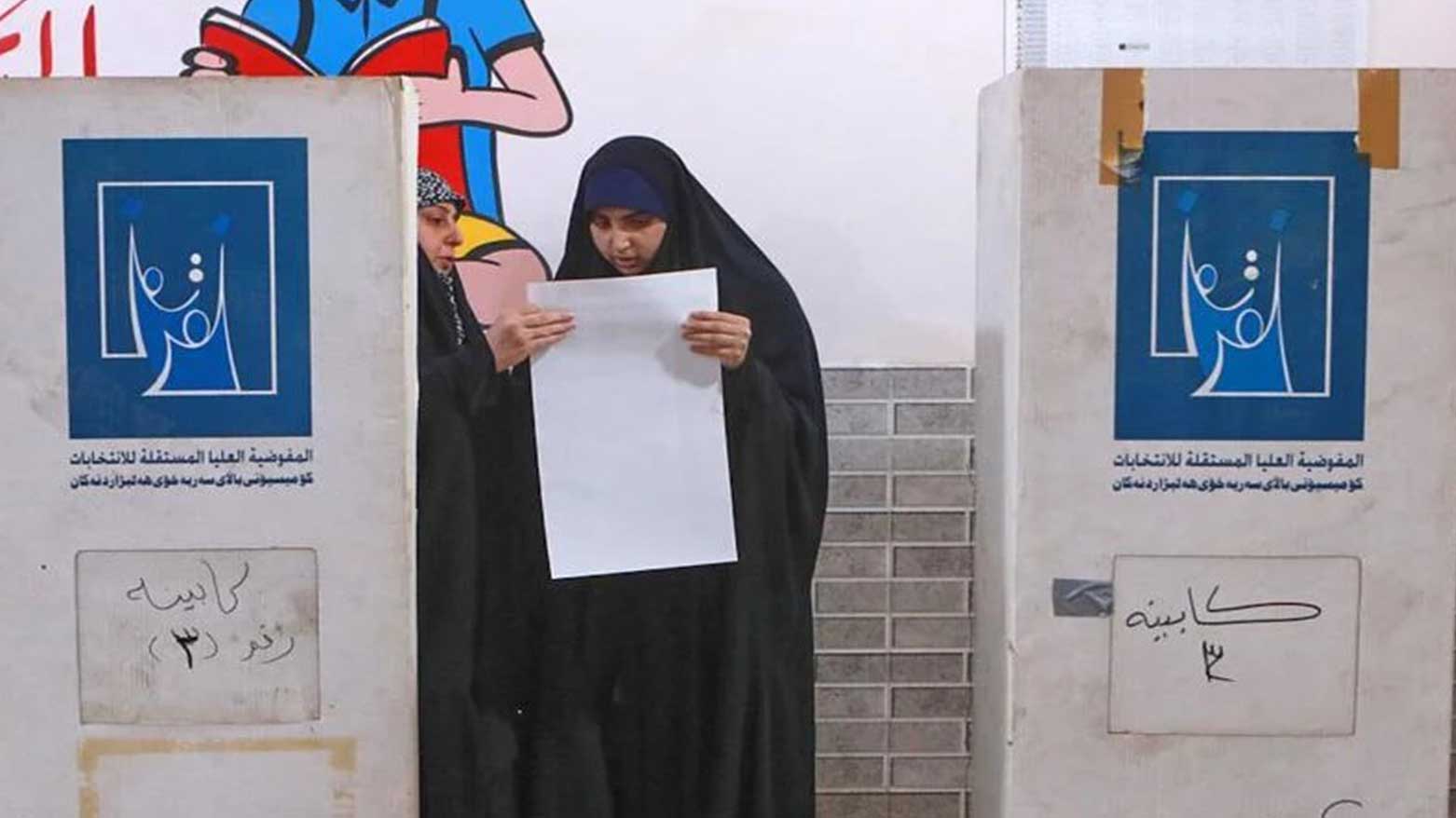Iraq’s Election Commission Begins Calculating Parliamentary Seats as Final Results Expected Within Hours
More than 100 complaints have been filed as officials say vote counting is 100% complete and results may be announced Sunday or Monday.

ERBIL (Kurdistan24) — Iraq’s Independent High Electoral Commission (IHEC) announced on Sunday that it has begun calculating the parliamentary seats for all political parties, including allocations for women and minority quotas, as the country moves into the final stage of its sixth parliamentary election process.
Jumana Ghalay, the spokesperson for IHEC, told Kurdistan24 that all ballot stations previously pending review have now been fully counted, with results matching the manual and electronic tallies at a rate of 100 percent.
She confirmed that the Commission has now shifted to the decisive task of seat distribution across party lists.
According to Ghalay, the Commission expects to announce the final results either later today or by Monday, after which a three-day window for submitting appeals will open. That period begins the day after the results are formally published on the Commission’s official website.
Ghalay also noted that provincial offices have begun issuing result sheets to political parties, coalitions, and candidates. This procedural step typically signals that the tabulation process is nearing completion and that the Commission is preparing for public disclosure of final outcomes.
IHEC confirmed that a total of 102 formal complaints were filed regarding the parliamentary elections—59 from the general vote and 43 from the special vote. The Commission’s complaints and legal review division has already begun investigating them.
Most complaints were categorized as “yellow,” meaning they lacked sufficient evidence or did not meet the threshold to affect results and would therefore be dismissed outright. A smaller number were classified as “green,” indicating potential procedural issues such as irregularities by polling staff, election-day disruptions, or violations involving security personnel at polling stations.
Ghalay stressed, however, that none of these complaints is expected to impact the overall election results, though each requires a detailed review.
Iraq held its special vote on Saturday, Nov. 9, and the general vote on Tuesday, Nov. 11, across all provinces of Iraq and the Kurdistan Region. According to IHEC data, turnout reached 82.42% for the special vote and approximately 54.35% for the general vote, figures that underline the high stakes surrounding this year’s election cycle.
Preliminary results released on Nov. 12 showed the Kurdistan Democratic Party (KDP) securing the highest number of votes nationwide, surpassing 1 million and 90 thousand ballots, placing it ahead of all other political parties in both Iraq and the Kurdistan Region.
The 2025 elections mark a critical moment for Iraq, coming amid widespread demands for electoral reform, public frustration over governance, and pressure to ensure transparent and credible voting procedures.
International observers—including those from the United Nations Assistance Mission for Iraq (UNAMI)—have closely monitored the process, emphasizing the importance of public trust in election integrity.
As Iraq awaits the final seat allocations, political parties are preparing for the next phase: coalition negotiations and parliamentary maneuvering that will shape the country’s political landscape for years to come.